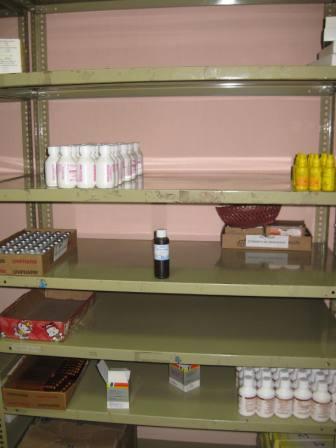
On a sunny afternoon during my trip to San Marcos, Guatemala in June where I was visiting as part of my Grand Challenges Canada project, I found myself facing a dwindling supply cupboard in the local health post. I was especially concerned about the low supply of life-saving zinc and ORS. Five sachets of ORS remained, and zinc was nowhere to be found. Disappointment and frustration were reflected in the faces of the health-care workers at the clinic that day. After two years of working hard to successfully introduce and promote the effectiveness of zinc and ORS as an affordable, reliable and safe treatment for diarrhoea, we were facing a stock-out at mid rainy season, an unnecessary blow to our very successful project.
Diarrhea de mayo is well known to the area mothers - the month of May when diarrhoea episodes are at their highest. We were well aware of the seasonal differences in diarrhoea treatment and worked with the Ministry of Health to plan that extra zinc and ORS was out of the warehouse shelves and into the health centres and posts long before May. With stretched government health systems, we also are aware of how cautious government health ministries can be in over-ordering supplies and having tablets expiring in warehouses, which is why MI supports them to forecast an estimate for the number of cases of diarrhoea and the amount of zinc and ORS needed. It was obvious, though, that either budget shortages or errors in forecasting the number of treatments needed had hit us.
Parents carrying their sick child into the local health clinic want to see well-trained health care workers at the door and they need to know that they will get what is needed every time they make the journey into their health post. It is a delicate balance of supply and demand - shelves must be well stocked and well used.
The idea of ensuring stocks are well used also means ensuring that zinc is on the government's "essential drug" list and is used for diarrhoea treatment - its most beneficial and life-saving purpose - and not for something else. I've seen cases where a new product arrives and it gets promoted or requested for more than its intended use and this includes zinc. Giving a child or adult zinc to treat skin infection or a headache could result in an empty supply cupboard and a young child untreated for his or her diarrhoea.
Having nothing to give a mother and her sick child not only leaves the mother feeling abandoned by the people who are supposed to help her, but the child remains sick until the shelves are stocked up - this situation leaves health workers frustrated. Compounding this problem, word of mouth on how the health post didn't have what was needed would quickly spread throughout the community. Even in communities where the shelves are lined with zinc & ORS, mothers may come to expect the shelves to be empty, based on previous experiences. This perception increases the chance that our patient won't return even when the supplies have.
In Canada, we may go into our local grocery store and find that our favourite crackers are temporarily out of stock but rarely do we experience an empty medicine supply. It is almost unimaginable. Not so in developing countries, like Guatemala, where stock-outs create serious problems for the success and sustainability of health care programs. Stock-outs remain a challenge for everyone, which is why a key part of MI's approach is to work with central and municipal-level governments to strengthen the supply chain at every link and create a system that addresses the barriers to tackling out of stock situations.
It is to everyone's advantage when the health system works: the child gets well; parents tell their neighbours, who then bring their own children into the health post for treatment; demand goes up; more children are treated; the well-trained health care workers can do their job properly; the community has healthier people who trust the health care system.
Fortunate for the families of San Marcos, a shipment arrived a week after our departure and the zinc and ORS are making their way through the supply chain to reach the mothers and children who had left earlier in the week, empty-handed. It was a learning opportunity that was not lost on us.
